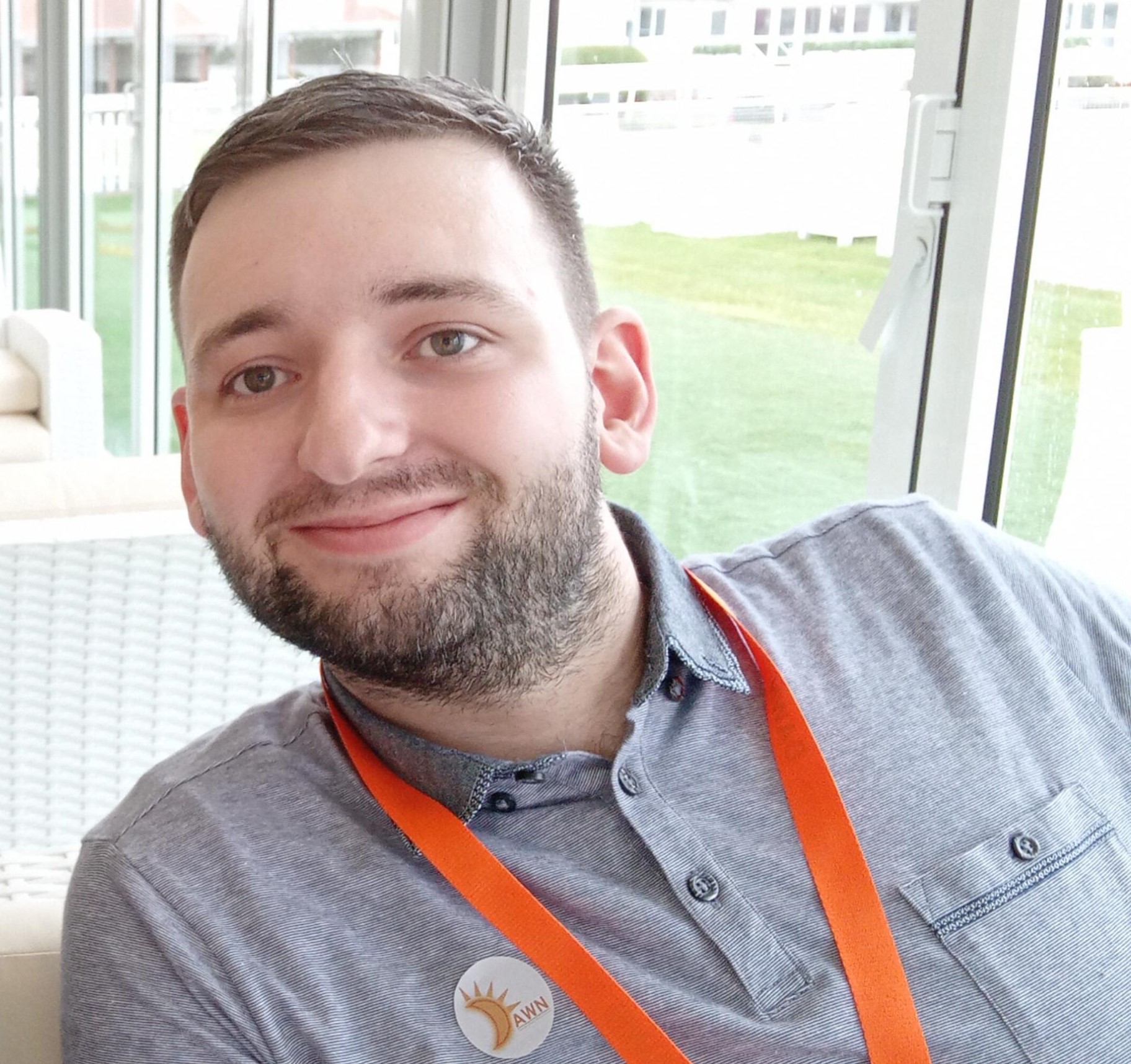
A University of Winchester graduate has played a key role in creating a ‘passport’ aimed at helping young neurodivergent people make the transition from education to work.
Luke Jackson has been working with Disability Advice and Welfare Network (DAWN) and Suffolk Law Centre on the Autism Education Leavers Passport.
The 25-year-old, who graduated with a degree in Computer Aided Design in 2023, contributed to the content and design of the 35-page booklet.
Luke drew from his experiences as a job seeker and the skills he learned at university.
“I really enjoyed what I learned at Winchester and the one-to-one tutoring I received,” said Luke, who works as a volunteer with DAWN where he is a website administrator.
The booklet comes in response to the findings from the Office of National Statistics which showed that almost 80 per cent of autistic adults are not working and that they are the least likely disabled group to be in any employment.
This is despite many people with autism, like Luke, being highly qualified.
Luke, from Frinton-on-Sea in Essex, explained that autistic people often have the skills required when applying for a job but have difficulty in presenting themselves at interviews and employers make few allowances for them.
"I'm hoping that this will give people the knowledge that they don't have to be alone with trying to find a job in the future," he said.
The new guide, funded by the Baring Foundation, contains advice on how to make the transition from school to higher education, how to claim benefits, how to apply for work and how to prepare for job interviews.
There’s also a two-page ‘Know Your Rights’ written by Suffolk Law Centre to give neurodiverse young people information about their rights as disabled persons in the workplace and to request reasonable adjustments for disability where appropriate.
Since its launch earlier this month DAWN and Suffolk Law Centre have been inundated with requests for copies of the guide and have sent out more than 200. Digital versions have also been distributed to the charities’ partner organisations.
Among those asking for a copy were Neil Couling, director general of the Universal Credit programme, and former Minister for Justice Sir Robert Buckland, author on the government’s Review of Autism Employment, published in February.
It has also drawn interest from sections of NHS and the Autism Centre of Excellence, based at Cambridge, which works closely with Cambridge University’s Autism Research Centre.
“We hope this can help these young people get into employment and thrive in the workplace, said Julie Baker, Discrimination Law Caseworker at the Suffolk Law Centre.
The Education Leavers’ passport is follow-up to DAWN’s previous Autism Passport, which could be personalised to the owner and could be presented when visiting courts, police stations, GPs, hospitals and other destinations where they might need help in communicating.
Luke is currently working on the design of an SOS version of the passport, which can be carried in a small container attached to a keyring.
His tutor at the University of Winchester, Becky Baker, Senior Lecturer in Marketing, Design and Immersive Technologies, said: “Luke has shown incredible dedication and perseverance in overcoming challenges, and his hard work is truly inspiring. It’s wonderful to see him applying his talents to make a meaningful difference in the world. This is a testament to what can be achieved through resilience and determination."
Back to media centre